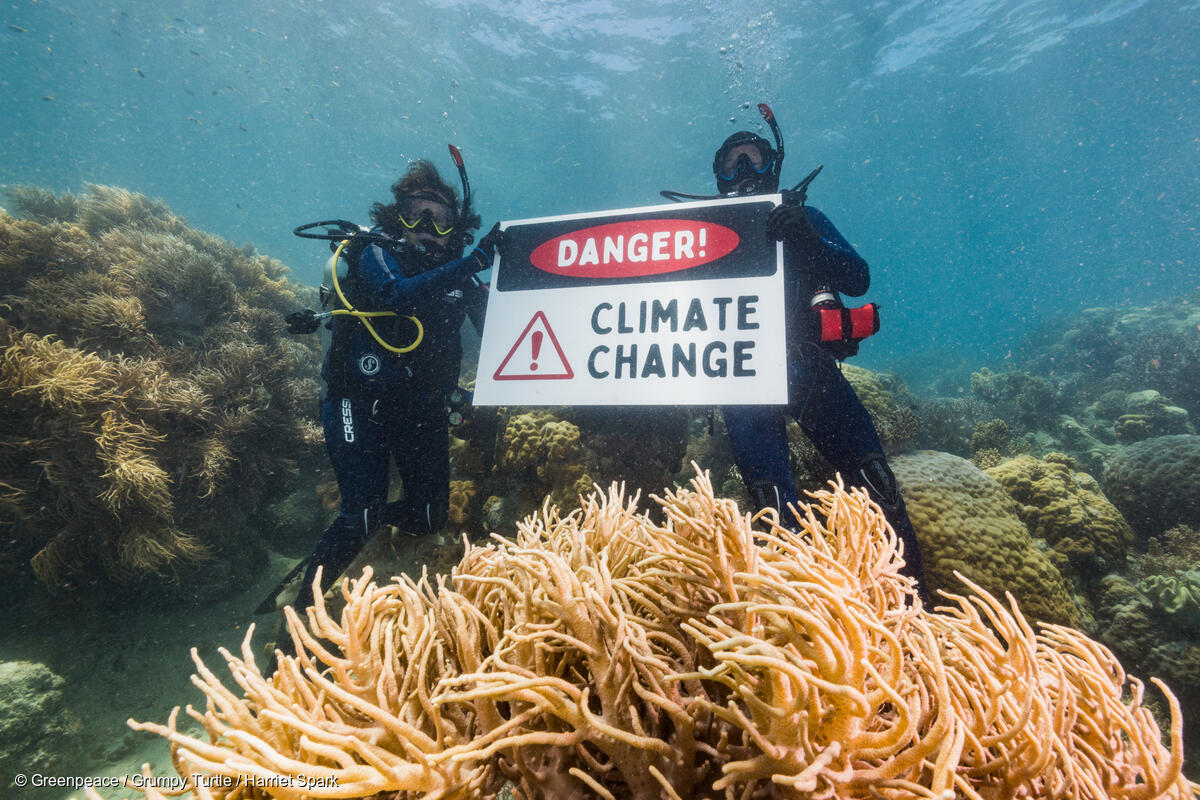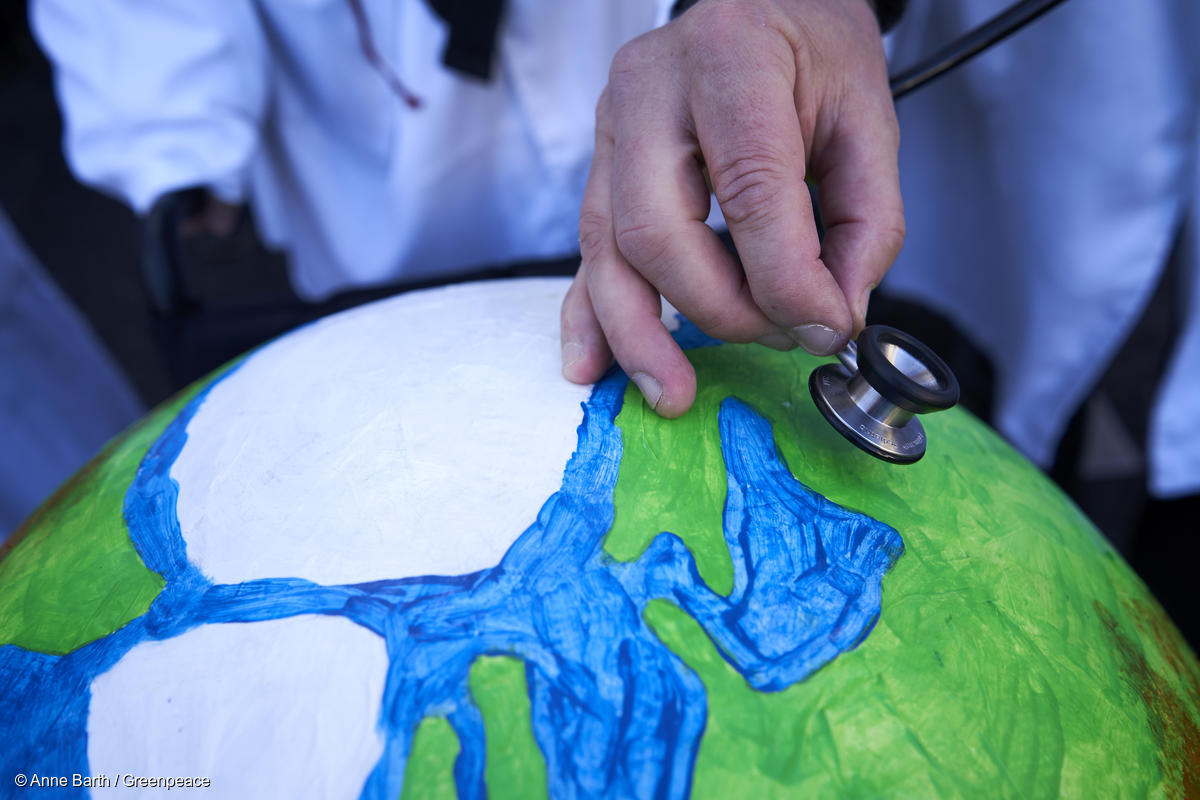Climate report this, 1.5°C warming that. In case you missed it, this week the UN released its latest climate report. And if you didn’t miss it, you’ve probably heard ‘IPCC’ or ‘1.5°C’ floating around. But you wouldn’t be the first person to find it, well, a little confusing to wrap your head around. So let’s unpack it together.

Worldwide demonstrations are taking place in around 500 cities.
Greenpeace is supporting “Fridays for Future” and Greenpeace volunteers are participating in a total of 40 cities in Germany.
Vor Beginn der Weltklimakonferenz in Madrid demonstrieren Aktivistinnen und Aktivisten auf den Straßen Koelns fuer mehr Klimaschutz.
Allein in Deutschland finden in rund 500 Staedten Demonstrationen statt. Greenpeace unterstuetzt dabei “Fridays For Future” und Greenpeace Ehrenamtliche beteiligen sich in insgesamt rund 40 Staedten in Deutschland.|Demonstration against the demolition of the village of Lützerath with the participation of Greenpeace.
The German government has agreed with the coal company RWE to mine another 280 million tons of the climate killer lignite in the Garzweiler open pit mine alone. Six times more than would be permissible to comply with the critical 1.5-degree limit. This is precisely why Greenpeace, together with other environmental associations and activists, is countering this with a powerful demonstration.
Die deutsche Regierung hat mit dem Kohlekonzern RWE vereinbart, allein im Tagebau Garzweiler noch weitere 280 Millionen Tonnen des Klimakillers Braunkohle fördern zu wollen. Sechs Mal mehr, als zulässig wäre, um die kritische 1,5-Grad-Grenze einzuhalten. Genau deshalb tritt Greenpeace zusammen mit anderen Umweltverbänden und Aktivist:innen dem mit einer kraftvollen Demonstration entgegen.
The UN’s Intergovernmental Panel on Climate Change (aka the IPCC) published its first report back in 1990. Now, currently in its Sixth Assessment cycle, the IPCC is due to release its latest climate report, known as the AR6 Synthesis Report, early this week.
But at this point, you might be wondering, what even is the IPCC? Why are their climate reports so important? And for that matter, what have I missed about 1.5°C? Don’t worry. We got you.
What is the IPCC?

Let’s start from the top. The IPCC is the leading international body for the scientific assessment of climate change. It’s a bit of a mouthful we know. Basically, the IPCC brings together the top climate scientists from around the world, to colate and assess all of the latest science related to climate change.
Operating under the United Nations, with 195 governments as its members, these assessment reports become much-needed textbooks for world leaders, and fundamental policy documents to help inform governments on decision-making relating to global climate action during this pivotal decade. No pressure!
How often does the IPCC release a climate report?
This is where is gets a little confusing – so stick with us! We mentioned earlier that the IPCC published its first report back in 1990. Fastforward to 2023, and 47 climate reports later, the IPCC is now finalising what it calls its Sixth Assessment cycle (hence the name AR6).
So the AR6 Synthesis Report is based on the content of the Sixth cycle, summarising findings of the last 6 reports released by the IPCC since 2015, including:
Three main reports from what’s known as Working Groups (The Physical Science Basis, Impacts, Adaptation and Vulnerability, and Mitigation of Climate Change), plus three other Special ‘Bonus’ Reports (Global Warming of 1.5°C, Climate Change and Land, The Ocean and Cryosphere in a Changing Climate).
What is expected to come from the latest IPCC report?
The upcoming synthesis report is just that – a synthesis. It covers and synthesises the science in the previous 6 reports of this cycle that began with the Special Report into 1.5°C.
That means that no new information or science will be added.
Okay, but what does the 1.5°C target mean?
Remember back in 2015, when world leaders adopted the legally binding Paris Agreement?
Well, that now-infamous pinky promise by governments was done to tackle climate change, with the overarching goal to hold global average temperatures to “well below 2°C above pre-industrial levels”, as well as to “pursue efforts” to keep dangerous global warming temperatures limited to 1.5°C.
Why is 1.5°C such a big deal?

It’s the golden science-backed-number of maximum global temperature increase in order to sustain all current levels of life and biodiversity on planet Earth. No biggie.
The target is set against a benchmark pre-industrial times, dating back to 1850, to compare the rise in global temperatures.
How close are we to 1.5°C of warming?
The bad news is, that science tells us that average global temperatures caused by emissions of greenhouse gases from human activities are already responsible for approximately 1.1°C of warming since the 1850s.
…And averaged over the next 20 years, should temperatures continue to increase at the current rate, global temperatures are expected to temporarily “overshoot” or exceed 1.5°C of warming.
BUT! The good news is, and despite what some media outlets may report, pathways to achieve the Paris Agreement goal of limiting 1.5°C of warming by 2100 are absolutely still achievable.
What matters now is to lower emissions as quickly as possible, through immediate emission reductions (aka no more investment in any new dirty fossil fuel projects), nature restoration, and carbon removal.
In the wise words of Sir David Attenborough, “If working apart we are forces powerful enough to destabilise our planet, surely working together we are powerful enough to save it. Perhaps the fact that the people most affected by climate change are no longer some imagined future generation but young people alive today, perhaps that will give us the impetus we need to rewrite our history.”

